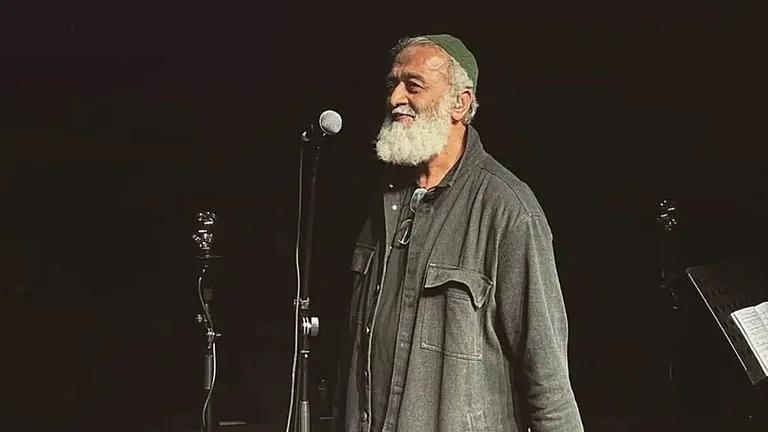The deja vu is inescapable. Two years ago, it was around this time that Arundhati Roy shot into the public eye, a frisson of awe rippling in her wake as the British rights for her first novel The God of Small Things sold for £150,000, or over Rs 1 crore. With the deluge that followed - the media attention, the huge advances, the unprecedented sales worldwide - one imagined a freak force had worn itself out. But it seems the juggernaut is once again preparing to roll.
Exciting as that might prove to be for Indian writing in English in general, Pankaj Mishra is - perhaps understandably - loath to be its trigger. Ironically, it was he who, as editor with HarperCollins, was the first to buy the rights of Arundhati Roy's book. Though he subsequently left his job with the publishing house, Mishra watched the storm whip around Roy from the aisles as a close friend. Now fighting shy of that kind of hype in which the numbers overshadow the writing; acutely uncomfortable with the 'whole idea of exalting a book because it is being sold in England', and wary of pithy sound bytes, Mishra says his relationship with his book is over. Time now for others to judge or react to it while he retires behind the covers.
Set primarily in modern-day Benares, The Romantics is, in crude terms, a love story. What about it, one wonders, has caught the attention of some of the most high-profile editors in the West - John Epstein of Random House, Nicholas Pearson of Fourth Estate (while at Orion, he was Vikram Seth's editor for A Suitable Boy), and Peter Straus of Picador? Gillon Aitken, Mishra's literary agent in England and one of the few people to have read The Romantics, says: 'The novel is written with great elegance and feeling, and with an understated emotional insight reminiscent of Henry James...the allure of the book derives from a more traditional literary skill than has been fashionable for some years' (see box). Aitken's endorsement is as pedigree as it can get: among a gallery of others, Aitken has been the literary agent for V.S. Naipaul, Salman Rushdie, and the Agatha Christie Estate.
What does Mishra's portending success augur for Indian writing in English? Very little, he would argue. 'There's a lot of over-valuation going on because this writing is linked with the western network,' says he. But Aitken is more optimistic. 'I think we're seeing a durable and overdue flowering of a powerful and natural literary talent,' asserts Aitken, 'and I would expect Indian fiction increasingly to play a vivid part in the international arena.'
That the efflorescence is for real, that the West is indeed taking Indian writing in English very seriously and training its scouting eye on Indian writers is apparent even in the genesis of Mishra's book. Having left his job with HarperCollins; his travelogue Butter Chicken in Ludhiana done, Mishra has been spending his time over the last couple of years writing articles in foreign journals. It was one of these - Edmund Wilson in Benares, an odd piece in The New York Review of Books, about him reading Flaubert and Wilson in Benares and failing to connect this great literature with the life around him - which caught Jason Epstein's attention. Epstein commissioned Mishra to write a non-fiction book based in Benares. This metamorphosed into The Romantics.
Even as the gavel falls on the auction, the bbc calls insistently. And Mishra dodges their ring. In vain, it would seem, because as Arundhati Roy can testify, the crown comes wrapped in motley.






















